Have you heard of tetrahydrocannabinolic acid, or THCA, yet? The precursor to the famous THC. This compound is non-intoxicating, meaning it won’t get you high, but it does offer many potential health benefits. Read on to learn more about the benefits and discover how to make a THCA tincture at home.
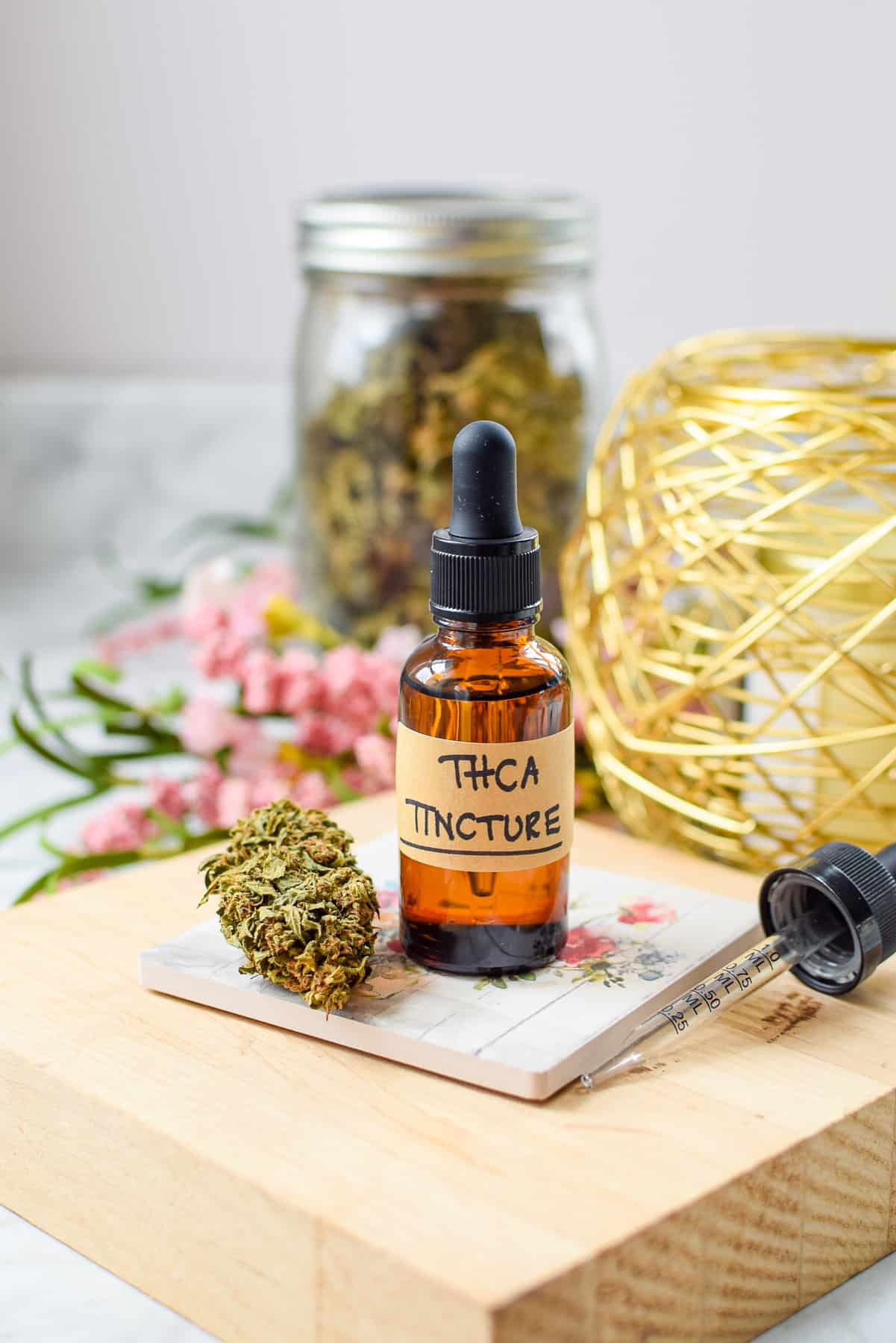
Table of Contents
Features
- Just 2 ingredients needed: THC-dominant cannabis flower & high-proof grain alcohol
- It can be used as a sublingual tincture or made into FECO
- Want to make it easy? Skip the hard work, order my Bliss MCT Oil, and have it delivered straight to your door – now shipping across the United States!
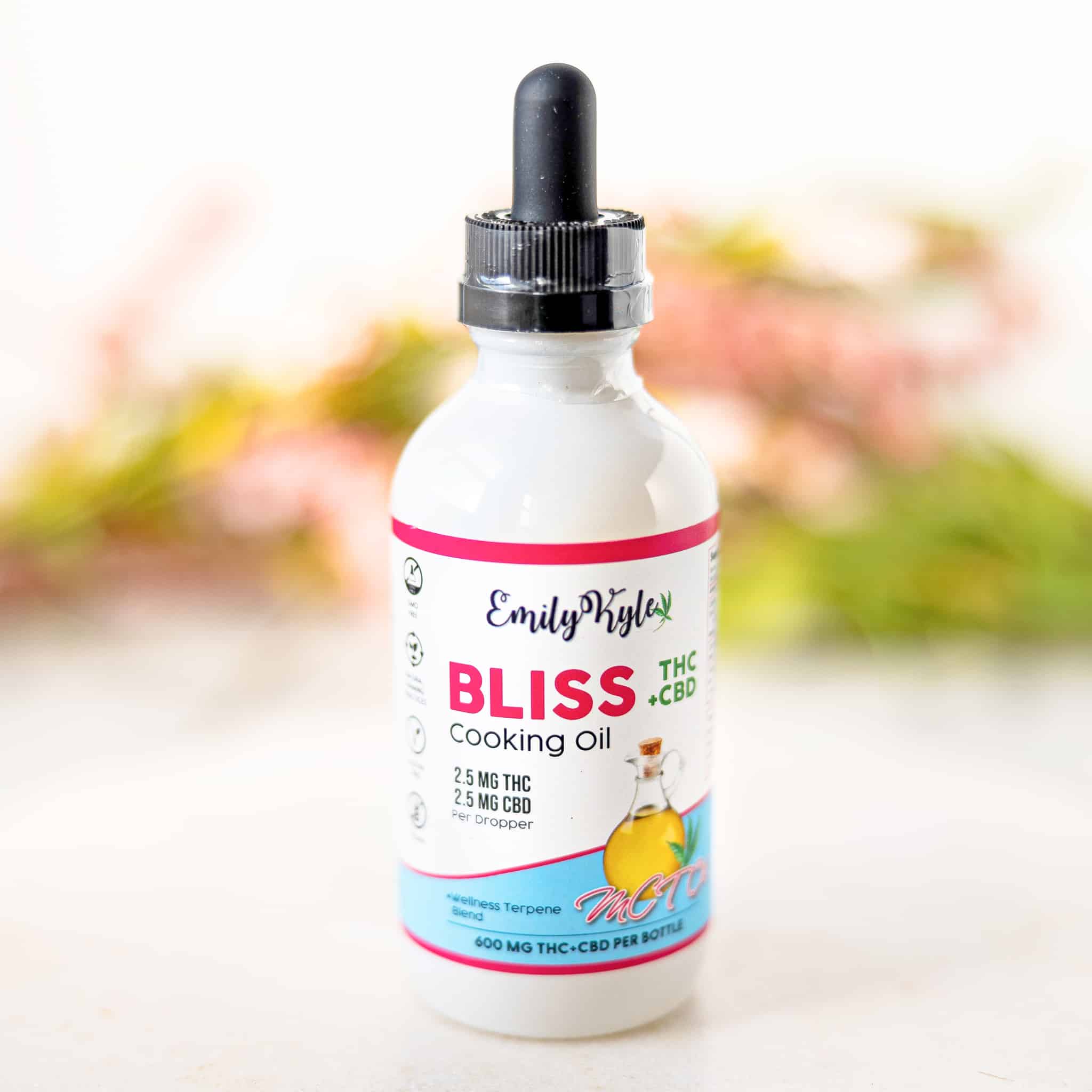
Why You Will Love This Tincture
You are probably familiar with the cannabinoid, THC, the one most famous for the intoxicating, or high, feeling it produces.
But when the cannabis plant grows in the ground, it doesn’t immediately contain high amounts of THC, it actually contains THCA or tetrahydrocannabinolic acid.
It is the process of decarboxylation that converts THCA into THC.
THCA is non-intoxicating, meaning it won’t get you high, but it does have many potential health benefits.
Many of my Well With Cannabis Community members have been looking for the benefits of cannabis without the high, which is what led to the creation of this THCA tincture recipe.
In this guide, you will learn how to make a tincture and learn more about the potential benefits of tetrahydrocannabinolic acid.
What You’ll Need
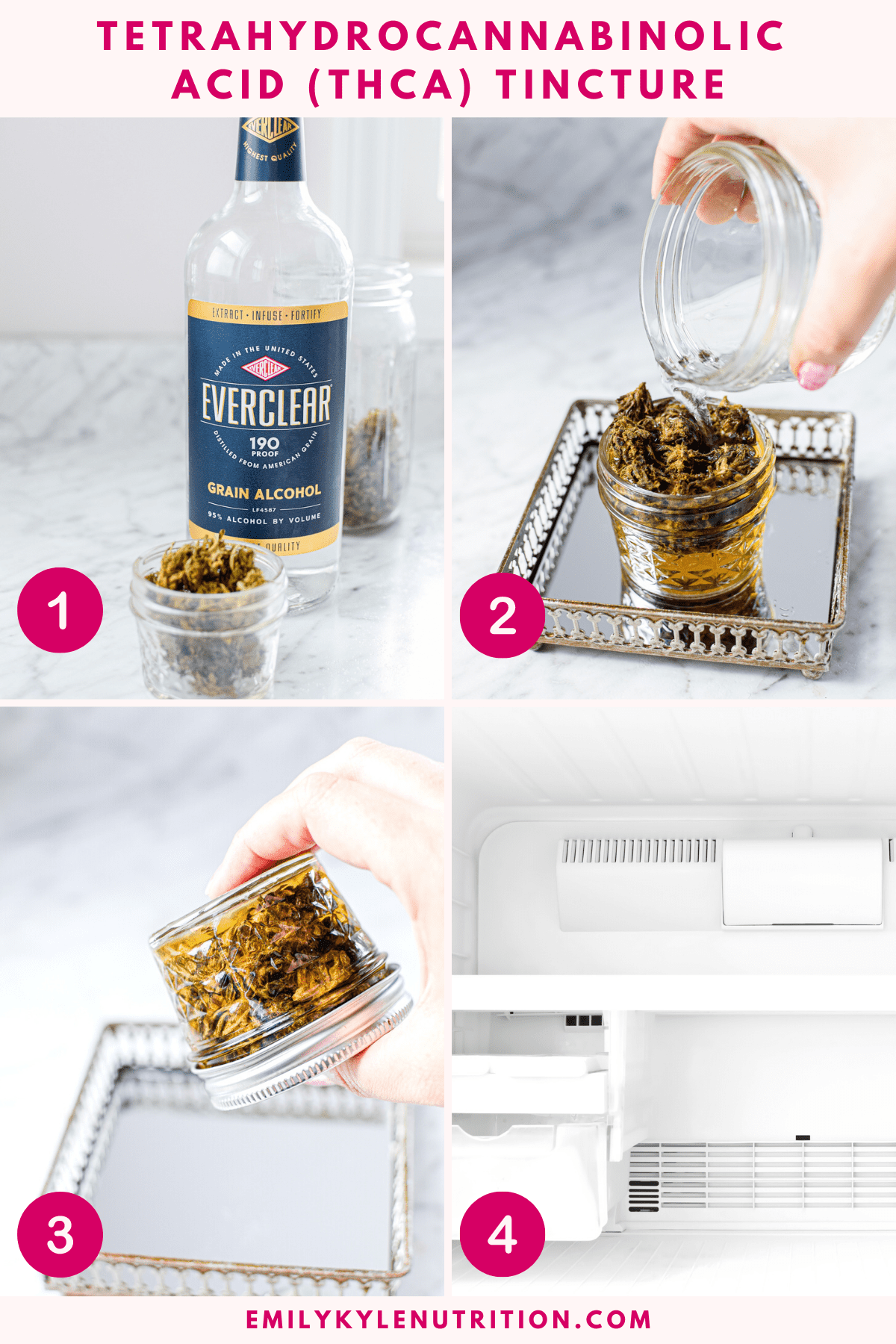
- THC-dominant cannabis flowers, dried: You must start with a cannabis flower with THCA already present. This comes from THC-dominant cannabis flower. You will need your desired amount of flower, ranging from 1 gram up to 1 ounce or more. Do NOT decarb.
- High-proof alcohol: You need high-proof, grain alcohol. You want at least 150 proof, but ideally 190 or 200 proof. Lower proof alcohols, like vodka, are not ideal. Be sure to check out my guide for where you can order high-proof grain alcohol and have it shipped to your door, or learn more about what to ask for when visiting your local liquor store.
Note: a complete list of ingredients with amounts and printable instructions is located in the recipe card below.
The Step-by-Step Process
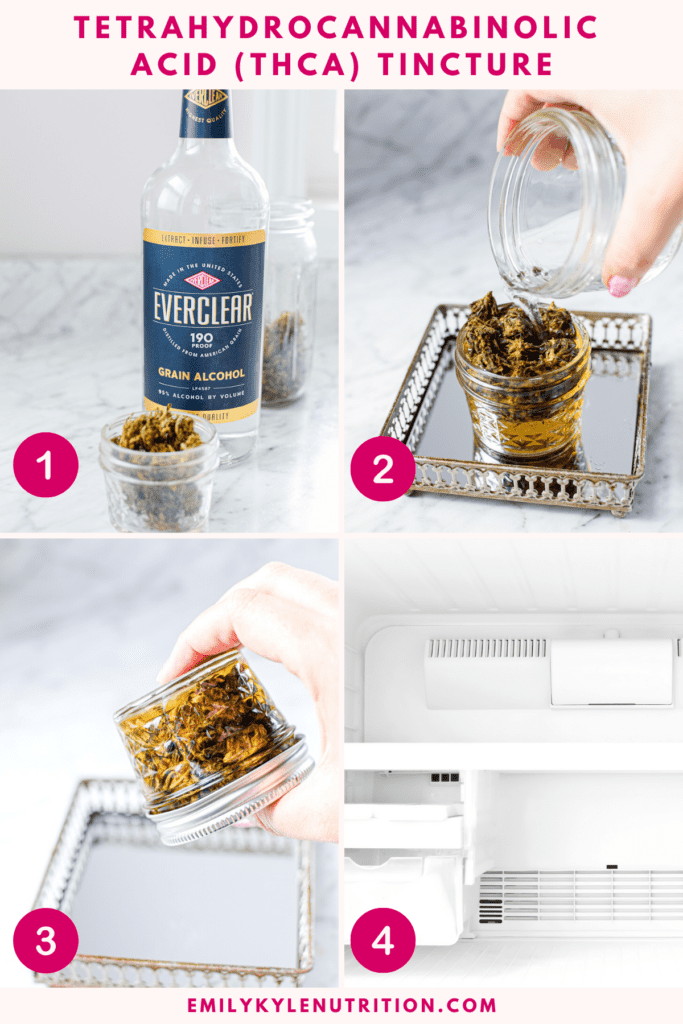
- Step 1 – Place the NON-decarbed THC flower in a mason jar inside the freezer. Freeze overnight. Place the alcohol inside the freezer. Freeze overnight.
- Step 2 – When you’re ready to make your tincture, pour the cold alcohol over the frozen flower. Screw the lid on tightly.
- Step 3 – Gently invert the mason jar to shake – do not shake vigorously. Place back in the freezer for 5 minutes.
- Step 4 – Remove the jar from the freezer, shake gently, and place back in the freezer for 5 minutes.
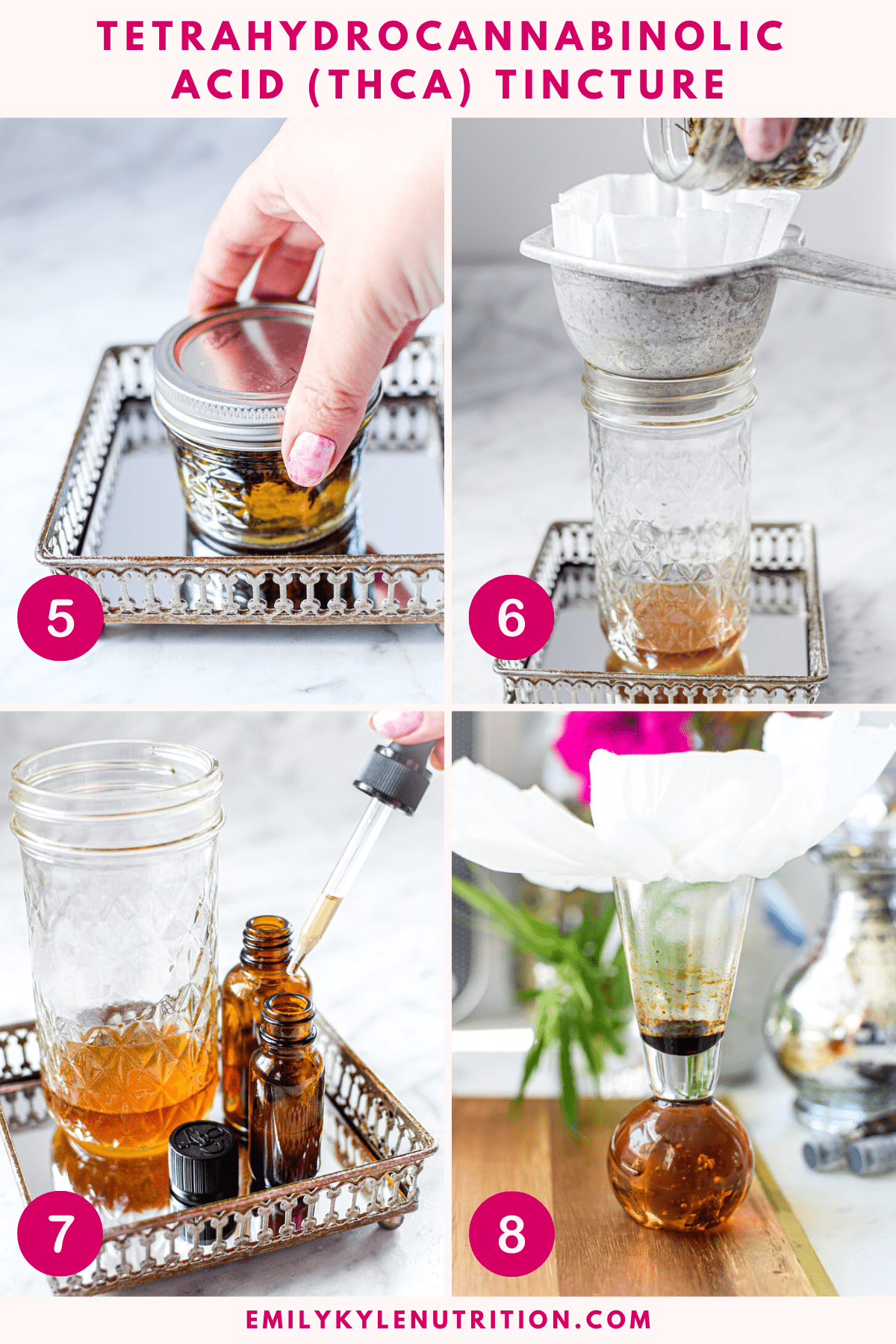
- Step 5 – Repeat the step above one more time for a total of 3 times.
- Step 6 – Remove from the freezer and strain the tincture through a filter. Repeat a second and third wash, if desired.
- Step 7 – Store in a dark jar, like this dropper bottle.
- Step 8 – Move on to evaporating the alcohol, if desired, but be sure to follow the no heat method to avoid converting the THCA into THC.
Note: complete step-by-step printable instructions are located in the recipe card below.
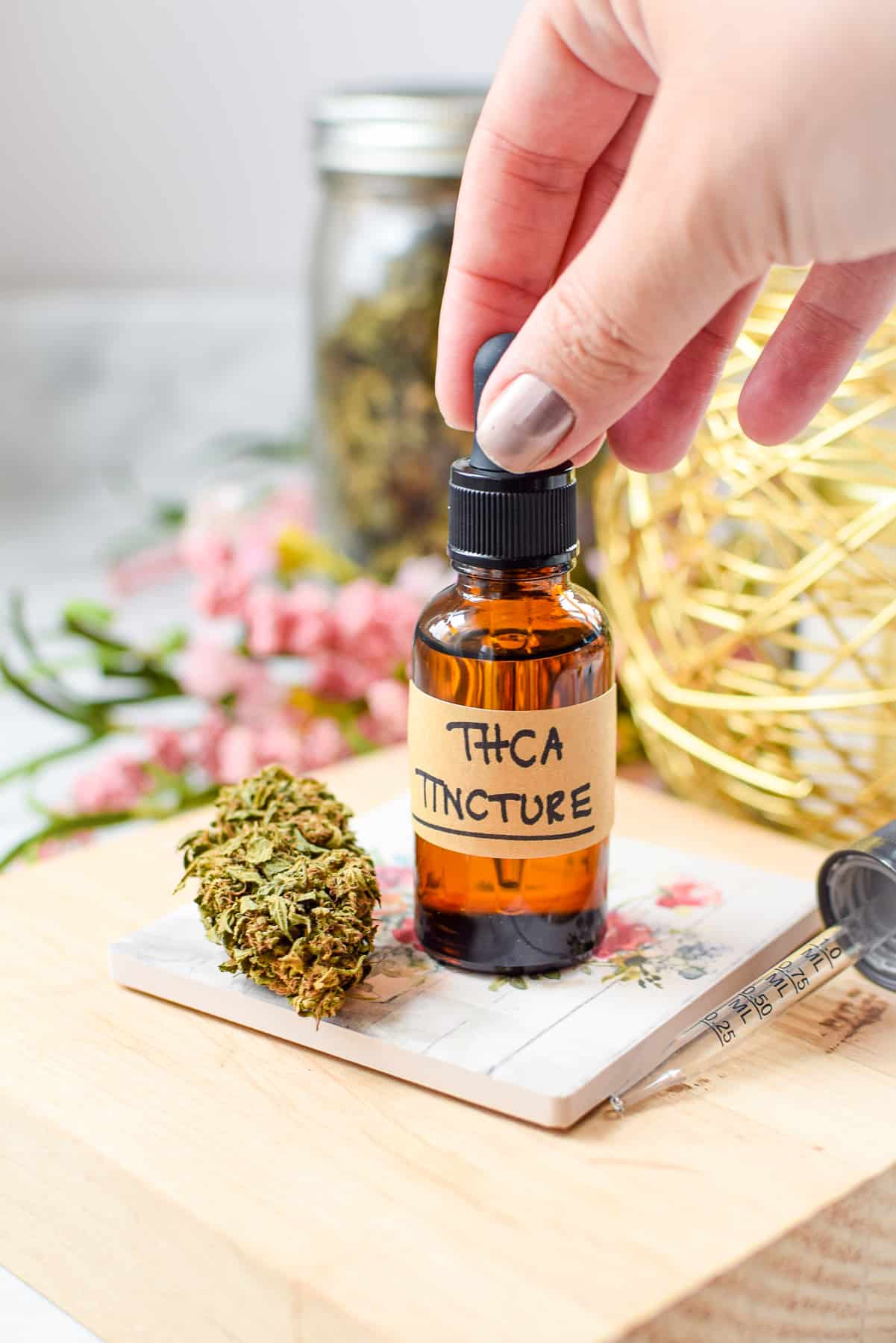
Storage Instructions
Store your tincture in glass, not plastic. A dark jar, like this dropper bottle, is ideal, but clear glass is just fine if you store it in a cool, dark place like a cupboard or freezer. Tinctures can be stored for up to several months or even longer. Learn more about how to store edibles here.
Determine The Dose
Want to get a more accurate guesstimate of the potency of your cannabis infusions and extractions? Try my popular edibles dosage calculator. Not sure what your perfect dose is? Learn more here.
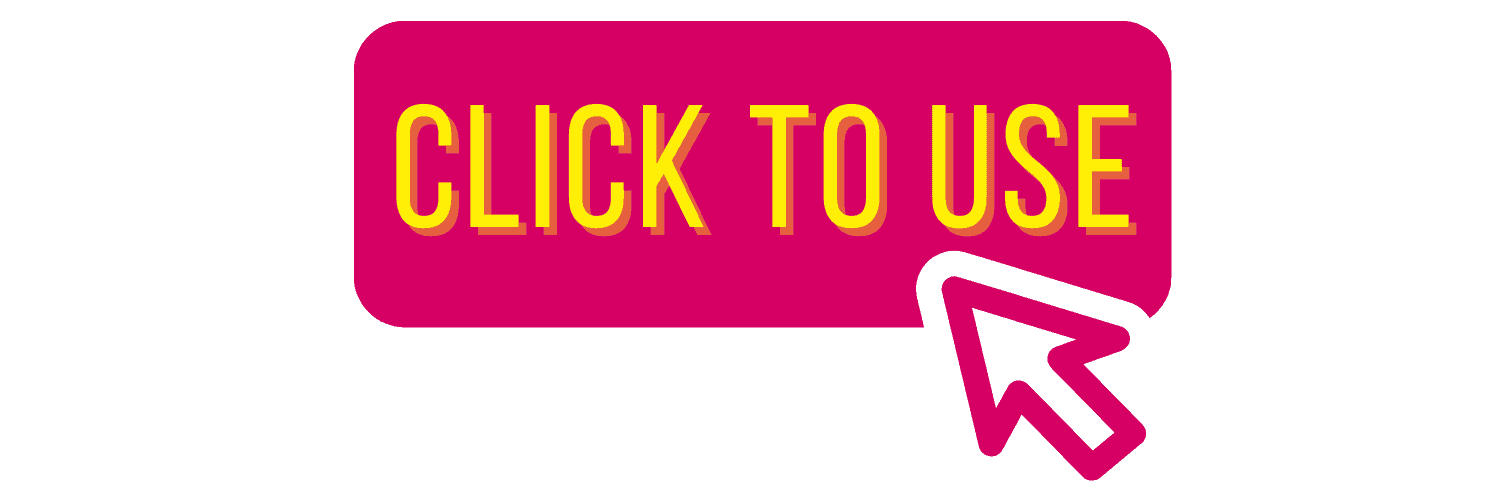
Potential Benefits of THCA
Tetrahydrocannabinolic acid, also known as THCA, is the most abundant cannabinoid acid found in raw cannabis. It is found within the trichomes on the cannabis plant.
THCA is the non-active form of THC, and because it is in a non-active form, THCA has no potential intoxicating activity (it cannot get you high).
However, research suggests that this chemical compound in its raw form has potential anti-inflammatory, analgesic, and antiemetic properties.
Anti-Inflammatory
In mice studies published in Bioorganic & Medicinal Chemistry, THCA has been identified as an anti-inflammatory agent and also has the ability to act as a bronchodilator, antipyretic, and anti-rheumatic agent.
While earlier reports suggested that THC and CBD can stimulate the production of pro-inflammatory eicosanoids, it was then reported that its metabolites, such as THCA, could inhibit this process, suggesting that the acid is an anti-inflammatory agent in-and-of-itself.
Anti-Analgesic
THCA has also been studied for its use as an analgesic, or pain reliever. In another mice study, both THC and THCA were administered orally at a dose of 20 mg/kg.
It was shown that after 30 minutes, the acid form of THCA showed an effect twice as potent as the neutral form THC.
Anti-Emetic
In addition to all of these benefits, THCA has also been studied for the treatment of nausea and vomiting, possibly suggesting that THCA may have stronger anti-emetic properties when compared to its alternative THC.
Published in the British Journal of Pharmacology, one study further supports the theory that THCA in its acidic form is not intoxicating like it is in its active form, noting that THCA did ‘not induce hypothermia or reduce locomotion, indicating non-CB1 agonist-like effects.
As cannabis can undoubtedly be used as a therapeutic tool, certain measures such as dosing, consumption rates, and quality of life can vary greatly based on a person’s tolerance of activated THC.
By eliminating the intoxicating effect, we can better utilize THCA at much higher doses for increased therapeutic results without compromising a person’s quality of life.
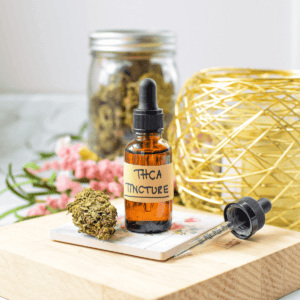
THCA Tincture Recipe – Tetrahydrocannabinolic Acid
Ingredients
- 14 grams dried THC cannabis flower NOT decarboxylated
- 8 ounces high-proof grain alcohol
Instructions
- Place the NON-decarboxylated cannabis in the freezer. Also place the high-proof alcohol in the freezer. Freeze overnight at a minimum, ideally 24 hours.
- When ready to prepare your tincture, place the frozen cannabis in a mason jar.
- Pour the cold alcohol into the jar. You only need to add enough alcohol to cover the cannabis completely*.
- Screw the lid on tightly and shake gently. Place the jar back in the freezer for 5 minutes.
- Remove the jar from the freezer, shake gently, and place it back in the freezer for 5 minutes.
- Repeat the above step one more time, for a total of 3 times.
- Remove the jar from the freezer one last time and strain. Pour the tincture through your preferred straining system, separating the plant-matter from the alcohol, into a clean mason jar. A coffee filter in a funnel works well here.
- You now have a golden QWET THCA tincture. You can choose to evaporate off as much or as little alcohol as desired, however, ensure you are using a no-heat method.
- Store this tincture in a mason jar, amber-colored tincture jar, or other glass container. You can store at room temperature, in the refrigerator, or freezer. A tincture should last months, if not longer.
Notes
- *Do NOT decarboxylate your THC flower if you want to keep the THCA properties intact.
- You do not need to use the full 14 grams of cannabis called for in this recipe. You can use as much or as little cannabis as you want. For a small, starter batch, start with just 3.5 grams.
- Only use high-proof alcohol, the higher the better. Lower-proof alcohol, like vodka, is not ideal. Use this guide to finding high-proof alcohol, if needed.
- You do not need to use the full 8 ounces of alcohol, you just need enough to cover all of the cannabis in the container you are using. Anything more is a waste.
- If you want to make FECO, follow this guide for how to safely evaporate the alcohol from the tincture.
Nutrition
Ways to Use Your Tincture
Holistic Health
A Beginner’s Guide to Crafting Herbal Tinctures
Articles & How-To Guides
How to Use A Cannabis Tincture: Step-by-Step Guide
Must-Have Tincture Resource Guide
The Top 10 Benefits of Using a Cannabis Tincture
Cannabis Infusions & Extractions
How to Make Full-Extract Cannabis Oil (FECO)
Cannabis Dessert Recipes

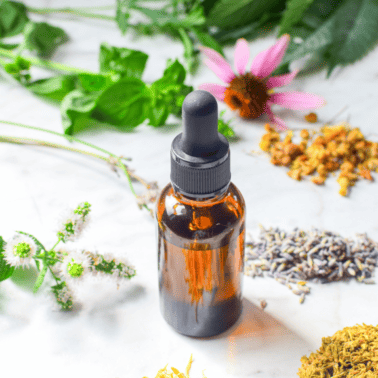
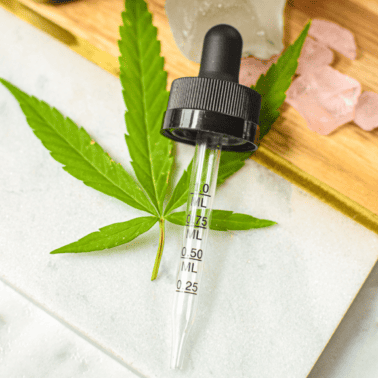
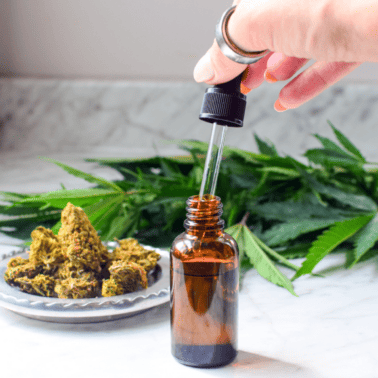
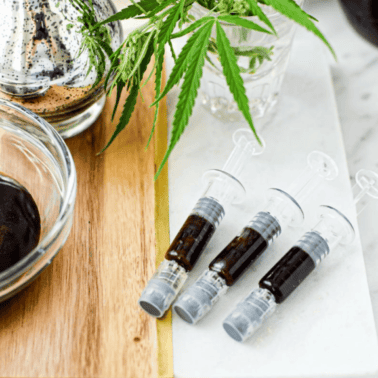
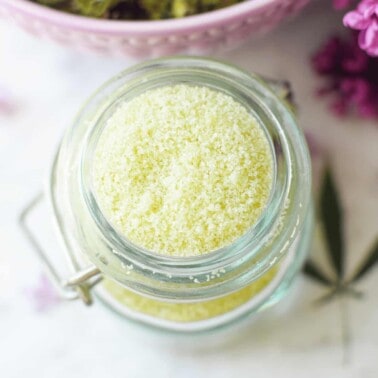
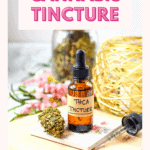








Can Thca be made with coconut oil? Can it be given to dogs?
Hey Zoie. What I would do is make this THCA tincture, reduce all of the alcohol, and mix that remaining FECO with coconut oil. I would avoid the traditional infusion methods as the heat may accidentally decarb the THCA into THC and make your doggie sick.
What can you do with the left over plant?
Hey Danny! Here are all of the different options you can try with your leftover plant material 🙂
Are the flowers that are not decarbed, fresh or dried?
Hi Lilmissy. Dried and cured flower for ideal flavor and potency.
So if you want the thcA to turn to thc, would you decarboxilate in a oven or would you use the low heat option or both, as opposed to the no heat option that would keep it in its original format thcA?
Hi Erin. If you are interested in achieving maximum THC conversion, you’ll want to decarb with heat. We recommend using an oven or instant pot. These guides will help: Easy Beginner’s Guide to Cannabis Decarboxylation and How To Decarb In An Instant Pot » No Smell Method. I hope this helps!
Emily,
I grow and make tinctures and gummies and have noticed that the alcohol causes the THCA to break down much quicker into its activated form and yet no one talks about this. People I was giving my raw tinctures to were getting high (not initially but if they let their tincture sit on a shelf for a couple of months and then took out- that’s what happened). So I started testing at a lab and damn if it’s not true- even though I’ve not seen this information anywhere. By two months it starts decarbing from the alcohol (the flower will stay for well over a year, if you don’t put it in alcohol). It doesn’t go all at once. If you started with say 10% THCA, at two months you might have 8 % THCA and 2% THC. And it keeps going although it’s too expensive to test every two months so I can’t tell you more, other than what I experience guinea pigging it myself. Wondering what you think about the alcohol accelerating the decarbing.
And another burning question, when you put the amount of alcohol used to create the tincture into the calculator, are you asking for the strained amount of alcohol or the amount you used to first make the tincture? I’ve been observing the loss factor and it averages 25%. Meaning I put in say 8 cups of alcohol and after I strain I get 6 cups of tincture. And I even have one of those super duper presses. So calculating for 6 cups or 8 cups of alcohol significantly alters the equation.
I just made some too strong tincture so I want to dilute but I don’t know how to calculate the potency. This batch was close to 40 mg THC/ml. If I now add twice as much alcohol, that should bring it down to 20 mg THC/ml. But that doesn’t account for the loss factor, which doesn’t exist when you’re adding alcohol to dilute.
If you have the time I’d be so interested and grateful for your response. It’s lonely out on the cutting edge. I don’t know people to ask these questions of or even to share what I’ve learned about how alcohol caused the raw cannabinoids to break down way faster.
thank you
Hi Andi. An interesting fact is that THCA is continually degrading into THC at an average rate of about 20% per year, with increased conversion when exposed to light, air, higher temperatures, and even alcohol. This means that cannabis products containing THCA usually have some THC and eventually have high levels of THC.
When using the calculator, you’ll want to use the amount of alcohol remaining at the end of the extraction and you’re correct in thinking that doubling the alcohol with dilute the potency in half.
I hope these responses shed some light on your concerns. If you have any other questions or need further clarification, please don’t hesitate to reach out. We’re here to help!